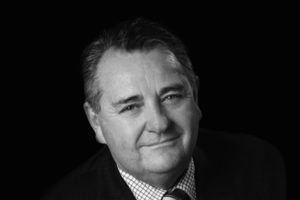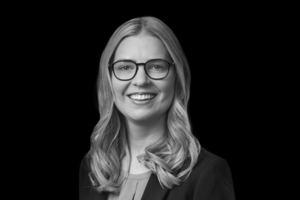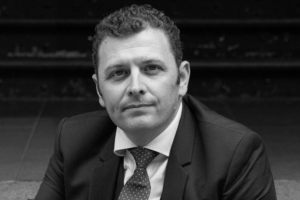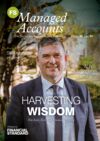Fund managers nervously await 'golden visa' reformsBY KARREN VERGARA | WEDNESDAY, 24 APR 2024 12:03PMFund managers that rely on "golden visas" to attract rich investors are waiting with bated breath as the government overhauls Australia's "broken" migration system. Recently, Home Affairs minister Clare O'Neill froze the ability of fund managers' Significant Investor Visa-compliant (SIV) products, which require a minimum investment of $5 million and essentially fast track residency in Australia, to attract potential investors. The Financial Services Council estimates that SIVs have attracted $15 billion from investors, mainly from China. Some $2.7 billion of this sits in venture capital and emerging companies. A host of fund managers depend on SIVs to reach wealthy investors they otherwise have no access to. They include Colonial First State, MA Financial Group, First Sentier Investors, Macquarie Group, Dexus, abrdn, Challenger, UBS Asset Management, Real Asset Management, IJ Capital, and Markuan Management which offer an array of SIV-compliant products. Wealth management firms such as Ord Minnett have a dedicated unit servicing this client base. KPMG Asia Pacific immigration leader Mark Wright told Financial Standard that the visa technically has not been cancelled. "It's still actively available but because no numbers have been allocated at the states, which is the primary vehicle by which the visa is granted, nobody can apply for the visa. There's a pipeline of applicants that launched the visa application, yet they are simply sitting there unresolved," he said. SIVs (188C) are part of the Business Innovation and Investment Program (BIIP), which comprises three other visa streams: business innovation (188A), investor (188B), and entrepreneur (188E). Home Affairs made zero allocations to the BIIP for 2023-24 (see Figure 1). Wright anticipates that the government will release further details of the refreshed BIIP. It will include what's typically called "transitional arrangements" for applications that are already in the system but not yet decided are resolved in a transitional way. "Then any new applications from the date of the change will be subject to the new refreshed provisions," he said. "I can only speculate what those new refreshed provisions might be. But I'd be surprised if it doesn't include some level of investment component." An article in The Australian published in January claimed that the SIVs were "quietly axed" by O'Neill. This is not the case. Last year, the government announced it will overhaul the "broken migration system", unveiling a strategy that will bring it "back to sustainable levels, ensuring we have the skills we need for the future and, ultimately, make sure the system is working in the interests of all Australians." The review suggested considering whether the BIIP should be retained as a substantial program. "We note that outcomes for the small Significant Investor stream have been stronger than for the remainder of the BIIP. If there is a desire to retain some element of the BIIP, consideration could be given to drawing on the relative strength of this stream in designing a niche investment visa product, much more sharply targeted to select migrants able to drive innovative investments or play a valuable role in the venture capital industry," the final report read. Adelaide-based Work Visa Lawyers expects a redeveloped version of the SIV to be introduced from 1 July 2024. It will be like the current SIV in that it may require a $5 million investment and that complying investments yet to be determined by the federal government may include a stipulated percentage of investment into venture capital, the law firm told clients. "The current allocation for the Significant Investor Visa represents only 1% of the overall visa allocations," the law firm said.
Source: Department of Home Affairs Business as usual - for now The SIV program was established by the Gillard government in 2012 and has been tweaked by successive governments. SIV applicants must invest at least $5 million and meet the Complying Investment Framework criteria. At least 20% must be invested into venture capital and private growth equity funds; at least 30% is invested in listed emerging companies; and 50% can be allocated elsewhere such as bonds, commercial properties, or listed equities. Since 2015, all SIV applicants must invest $2 million in higher risk emerging companies and venture capital. Since 2021, investors must allocate at least $2.5 million into emerging and innovative Australian companies. According to the FSC, just over 3000 SIVs were granted to primary applicants in 10 years, an average of only 313 per year. These figures do not include the applicants' spouse and dependent children. "The SIV is very small in number but has a significant impact on Australia. While it may be suggested that the program should be jettisoned in exchange for an increase in Australia's skilled migration intake, we do not see it as a zero-sum game," the FSC wrote in its submission to the migration review. KPMG's Wright said fund managers that have part of their business built around the current design and framework of the SIV could be significantly impacted and may have to adjust for potential changes. "There are other managed fund providers that have similar arrangements, but perhaps not a dedicated unit built around specifically the SIV programme. That, perhaps, might be more manageable for those fund managers [and] pivot necessary, including, for example, if the government does go down the path of increasing the level of required investment into a venture capital or start-up private equity fund," Wright said. This year, the Henley Residence Program Index ranked Australia as the 8th best country of residence according to its investment program, lauding it for its reputation, quality of life, and path to citizenship. Portugal, Austria, and Greece top the index. The US, which ranked 10th, requires just US$800,000 ($1.4m) in exchange for the right to live, work, and study without restriction. Canada, ranked 5th, requires CAD$1.2 million ($1.3m) to invest in its start-up business program. These are far less than Australia's investor stream requirements of $2.5 million, for example, which provides the right to live, work, and study without restriction. Australia takes about 12 months to process applications while the pathway to citizenship is around five years. Adrian Di Mattina, director and portfolio manager at SG Hiscock & Company, believes that Australia's Department of Immigration and its screening process do a very good job of dealing with problems of unsuitable applicants or corruption. "The screening process also deals with individual character and money laundering. Roughly a third of applicants are either knocked back or withdrawn, demonstrating the rigorous screening of applicants," Di Mattina said. The FSC said that SIVs have been a "beachhead" for Australian financial services companies and fund managers to gain a foothold in the Asian high-net-worth segment. "Our members have noted that without the SIV program they would never have had a hope of getting a foothold in this important market. Our members have advised us that SIV investors generally make other investments outside the $5 million required under the program," the FSC said. Di Mattina points out that the timing of these proposed SIV changes is particularly concerning. "The ASX emerging companies sector faces difficulties, with record-low IPOs and institutional placements. Many venture capital companies are also struggling with funding challenges in a competitive environment where capital is required to support their growth and innovation initiatives," he said. The FSC refutes suggestions that abolishing SIVs will benefit the economy by over $120 billion over 30 years. "We believe these arguments are incorrect. SIV investment capital has provided genuine risk equity to early and growth stage Australian companies. Australian jobs and industry rely on a steady flow of foreign capital to support investment into growing businesses across all sectors of the economy, including regional areas," the FSC argued. "The SIV program has played an important part in attracting foreign capital to Australia and creating thousands of jobs in hundreds of smaller Australian businesses." Related News |
Editor's Choice
Janus Henderson acquires NBK Wealth, Tabula Investment Management
ART names advice and education leads
Men, women in same occupation drive pay gap
Macquarie Group profits falls 32% to $3.52bn
Products
Featured Profile

Robert De Dominicis
GBST HOLDINGS LIMITED

























